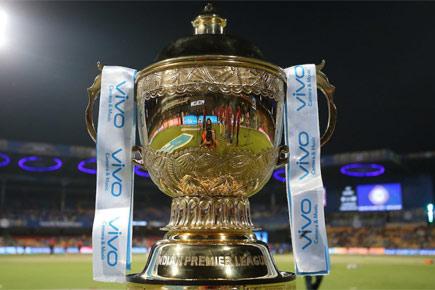Star India today completed its virtual monopoly of cricket broadcast by winning the coveted Indian Premier League (IPL) media rights for a whopping 16,347.50 crore (USD 2.55 billion) for the next five years

Star India today completed its virtual monopoly of cricket broadcast by winning the coveted Indian Premier League (IPL) media rights for a whopping 16,347.50 crore (USD 2.55 billion) for the next five years. The staggering deal, which will run from 2018 to 2022, has turned out to be a financial windfall for the BCCI despite the administrative crisis it is facing at the moment.
ADVERTISEMENT
The testimony to IPL's growth as the premier sporting property of the country is reflected by the fact that the previous 10-year bid for TV rights only was bought by Sony at Rs 8200 crore in 2008.
Now, the BCCI stands to earn nearly double that amount in half the duration (five years) with earnings of Rs 3270 crore from IPL media rights per year.
The BCCI will now earn Rs 55 crore approximately from an IPL match compared to Rs 43 crore, ironically, for each international match that India play.
"India, cricket and IPL have changed dramatically since its inception (in 2008) and this bid is a reflection of that," Star CEO Uday Shankar told mediapersons. The media rights include broadcast (TV) and digital (mobile and internet) for various segments namely India, Middle East, Africa, Europe and America.
Interestingly, rival Sony's individual bid for broadcast (TV rights) this time was Rs 11,050 crore compared to Star's Rs 6,196 crore. However, as per rule, the companies could form a consortium and if its consolidated global bid happened to be greater than the sum total parts of every individual bid they stand to win the rights.
Accordingly, the sum total of other bids, excluding Star consortium, was Rs 15,819.51 crore which is at least Rs 500 crore less than Star India's consolidated bid. It is expected that Star India's digital vertical HotStar would be used for live streaming of IPL matches in India.
Shankar admitted that they might not have won the bid had the amount been slightly lesser. "Even if it was slightly less, we would not have got the rights. In every category, it was so competitive," Shankar added.
The BCCI has been embroiled in a pool of controversies having not implemented the Lodha Reforms and its current office-bearers are facing the wrath of the country's apex court. But Shankar said that popularity of the game is such that watching cricket still is the favourite pastime of the Indians.
"Despite the off-field issues of BCCI, watching a cricket match in India remains an amazing experience," Shankar said. BCCI CEO Rahul Johri, on his part, said: "Our main endeavour to the stakeholders was to provide a transparent process where there should not be any iota of doubt."
In the morning, 14 out of the 24 companies that had bought the ITT (Invitation to Tender) document bid for various rights, turned up for the auction.
Out of the 14 companies, BamTech was disqualified as they did not meet the requisite criteria. Sony and Star were the two companies which stood the test of scrutiny for India broadcast rights.
Some of the other companies that were in contention for India digital rights were Times Internet Limited, Jio, Airtel and Facebook.
 Subscribe today by clicking the link and stay updated with the latest news!" Click here!
Subscribe today by clicking the link and stay updated with the latest news!" Click here!







